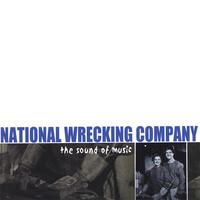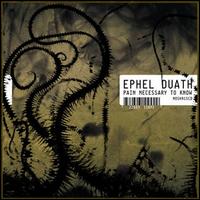National Wrecking Co - "The Sound of Music" (for igloomag)

Chicago is the home of many genres of music, but arguably its influence over industrial and electronic music holds the greatest sway. Well, maybe not. But remind yourself that Chicago was once the physical and is now the spiritual home of Wax Trax! Records, the beating heart of Industrial Dance in the eighties and early nineties. Look at the influence of the label – home to Ministry, Revolting Cocks, Meat Beat Manifesto, KMFDM, Thrill Kill Kult and countless others. These bands were the genesis of the current EBM/IDM scene. And their production and composition techniques form the staple elements of the genre: tough beats, samples (both musical and spoken), electronic atmospheres. Where would countless bedroom laptop twiddlers be without the influential sounds of Front 242’s “Endless Riddance” or the spaghetti western electro of Acid Horse’s “No Name No Slogan”? Well, honestly, they’d probably still be doing their thing, but it would sound very different. Chicago’s National Wrecking Company answers the question definitively.
National Wrecking Company has, after nearly a decade-long gestation period, released The Sound of Music, and the album lives up to the ambitions inherent in the name. Like a Zen koan, what is the sound of music? It is noise and silence, melody and atonality, rhythm and ambient. NWC tackle all types of sounds and do it with élan. “The Sound of Music” is split into three distinct parts, dispersed over the course of the album’s 57 minutes, and is presented out of order. Part II starts the album off with an electronic squeal, a drop-bass, and a haunting piano motif that loops, topped off with biting electronic percussive stabs and other melodic embellishments, both acoustic and electronic. It’s a nice taster for the rest of the album. Track three, “What Is The Colour Of your Kindness?” really shows the Chicago roots of the NWC. This is hard dance in the WaxTrax/Jack Dangers mode, with pounding drums, relentless bass, and those lovely 808 handclaps that were the hallmark of the genre for so long. Sounding like a forgotten Meat Beat b-side circa God O.D., it’s the highlight of the album.
“Thank You For Asking” is next, a collage of soothing, vaguely eastern melodies and abrasive, distorted sheets of noise that segues into the neo-ambient of “Dear Mr. Echo,” another highlight. Bringing to mind “O.O.B.E.” from The Orb’s “Blue Room” album, the track’s gentle synth washes slowly and subtly give way to a pulsing melody that rises and falls like waves crashing. Metallic percussion establishes itself, insinuating itself into the gestalt of the music, integrating with the melody in a manner so seamless as to appear both effortless and completely obsessed over.
And perhaps this is the ultimate summation of The Sound of Music. It appears so fully realized and satisfying that it both sounds like the ProTools windows were pored over for endless weeks and that it could have all come out in a single jam session. Truly interesting and utterly compelling, one would hope that National Wrecking Company is spearheading some kind of revival that would bring Chicago’s electronic glory back.











